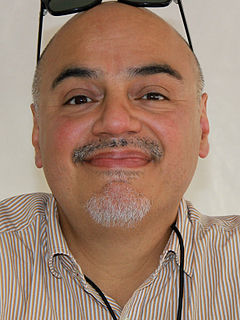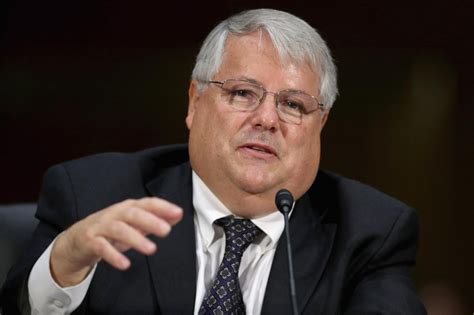A Quote by Jamie Dimon
Companies are returning a lot of money to shareholders through dividends and buybacks. And a lot of people say that's not a good use of capital. I think that's normal reallocation of capital.
Related Quotes
The financial doctrines so zealously followed by American companies might help optimize capital when it is scarce. But capital is abundant. If we are to see our economy really grow, we need to encourage migratory capital to become productive capital - capital invested for the long-term in empowering innovations.
The other dynamic keeping the stock market up - both for technology stocks and others - is that companies are using a lot of their income for stock buybacks and to pay out higher dividends, not make new investment,. So to the extent that companies use financial engineering rather than industrial engineering to increase the price of their stock you're going to have a bubble. But it's not considered a bubble, because the government is behind it, and it hasn't burst yet.
There's a lot of really wonderful things about the United States of America, especially its ethnic diversity and its mostly successful struggle to create a democracy out of many different cultures. So, we have a lot of capital as a people, we have a lot of cultural capital to keep our democracy going.
One of the principal impediments to job creation is uncertainty on the part of American companies, large and small. We've all watched as companies have sat on a lot of capital. They're uncertain about what tax policy is going to be. They're clearly uncertain about how health care costs. They're uncertain about all the regulations on capital markets.
I think the money for the solutions for global poverty is on Wall Street. Wall Street allocates capital. And we need to get capital to the ideas that are successful, whether it's microfinance, whether it's through financial literacy programs, Wall Street can be the engine that makes capital get to the people who need it.
There are many people who think we should have zero tax on capital gains, interest and dividends for everybody, as - the very, very wealthy. But recognize that means that Bill Gates and Warren Buffett would pay no income tax at all. And some people say, 'Well, that's a good thing for growth of the economy.'
In general President Obama's policies have been very, very skewed and very, very extreme. Like on healthcare for example, I don't think that trying to ram healthcare through was a smart idea politically, because he wasted a lot of capital and now he doesn't have any of that same capital with even his own party that he used to have.


































